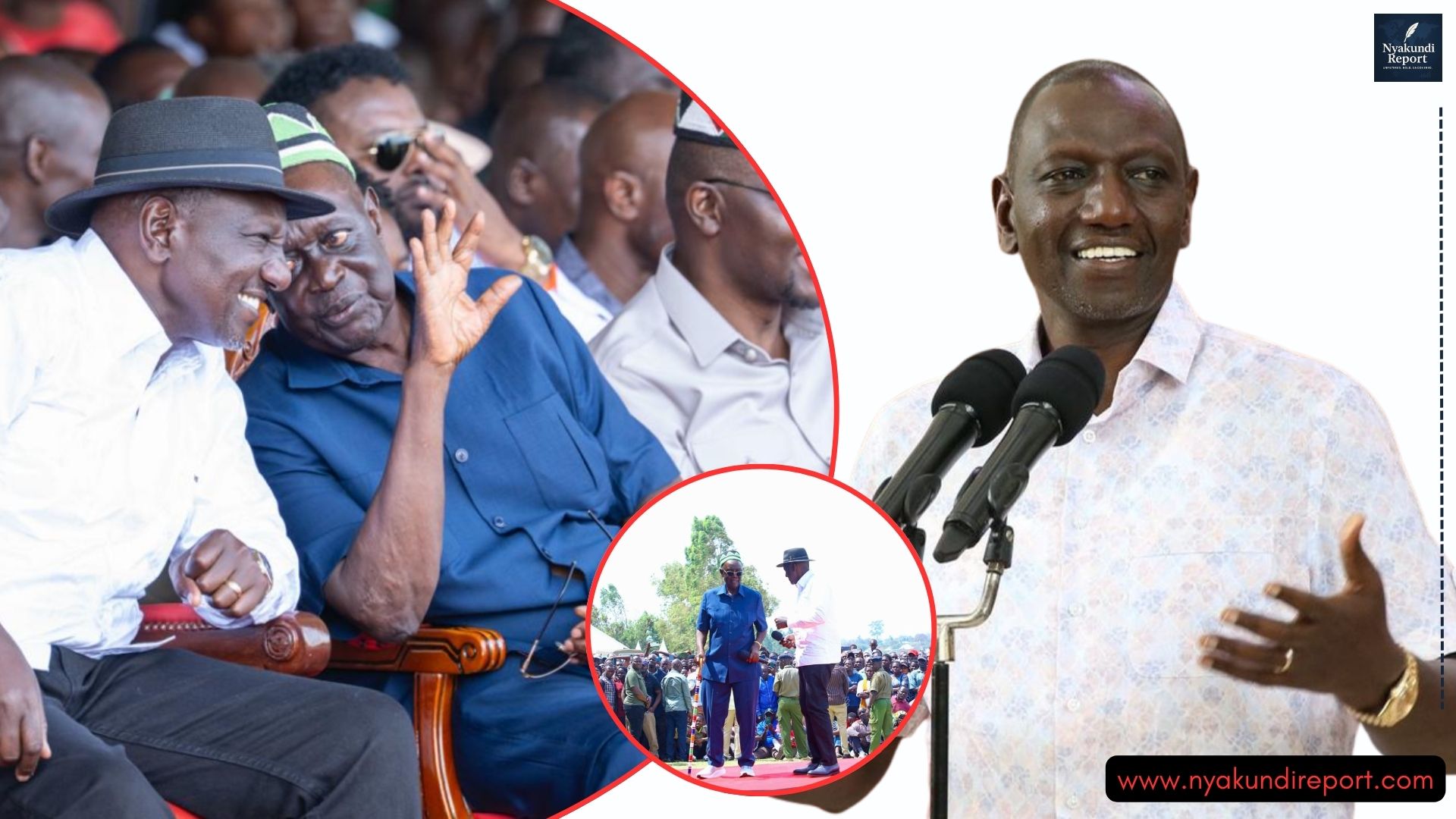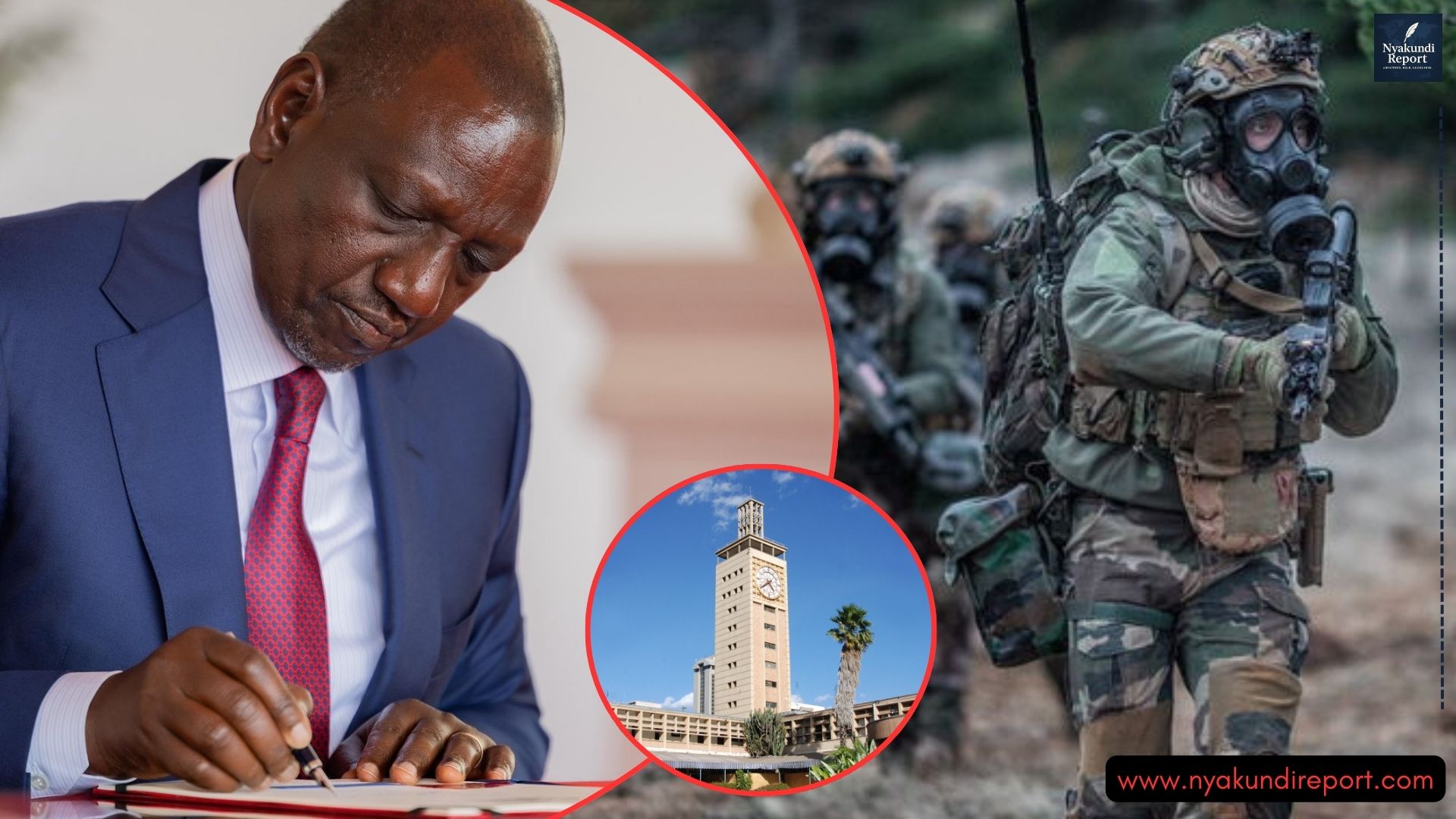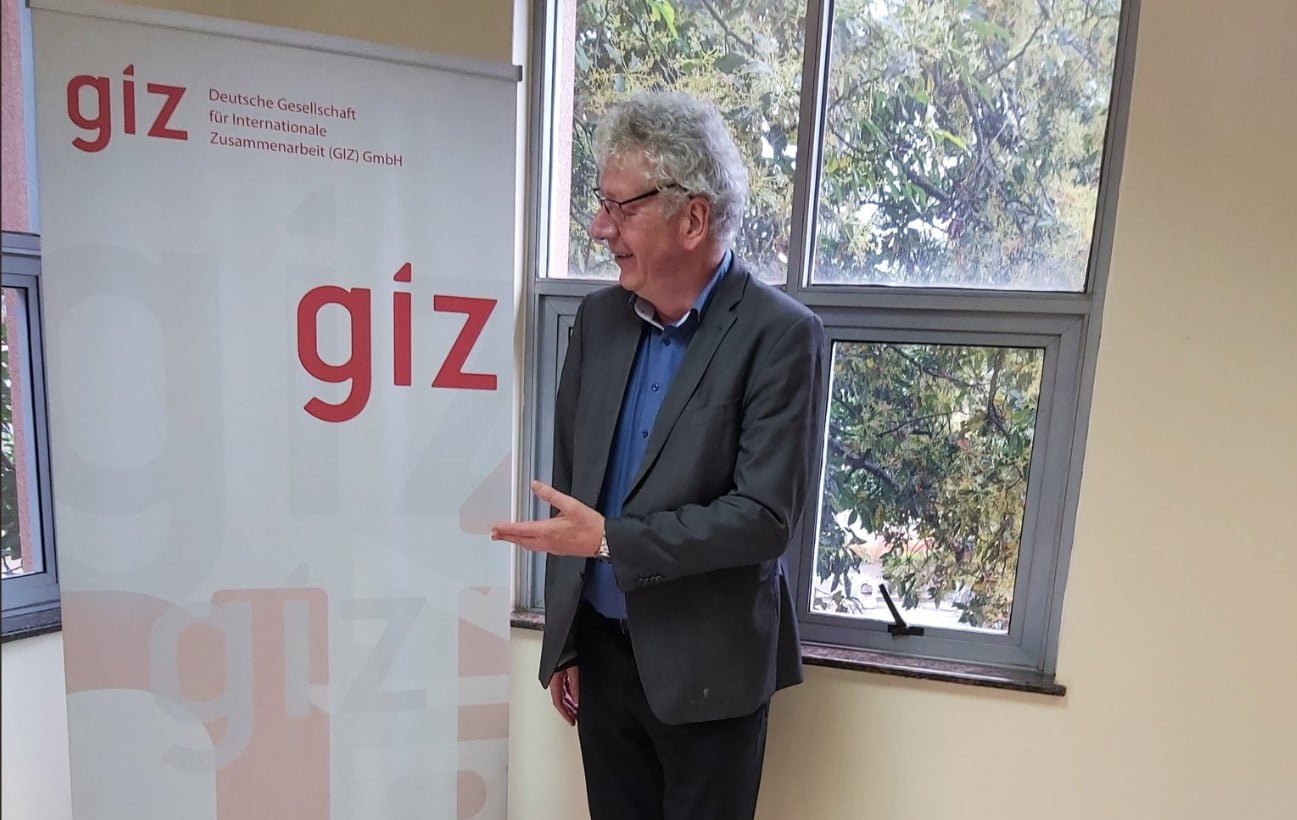A storm is brewing in Kenyan engineering circles following viral discussions in professional WhatsApp groups alleging that a senior consulting engineer and lecturer at Jomo Kenyatta University of Agriculture and Technology (JKUAT) has been deliberately frustrating postgraduate students.
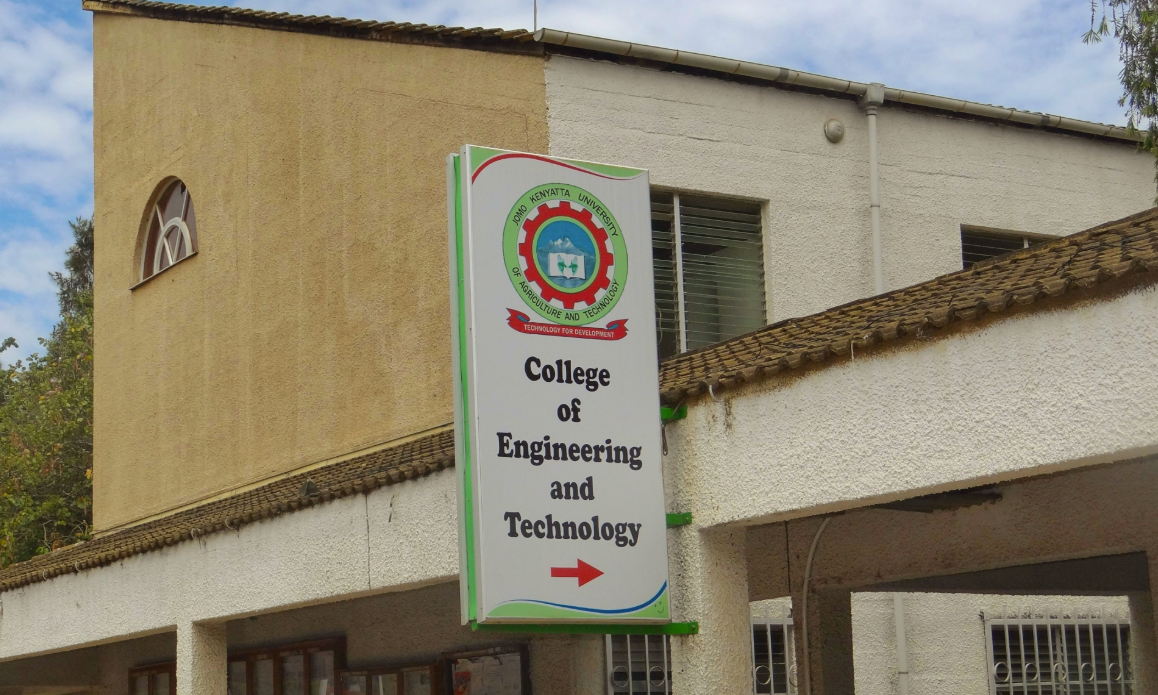
According to multiple engineers participating in the online exchanges, the individual, who reportedly teaches the unit Construction Management, has repeatedly failed Master’s students over what they describe as a “simple unit,” with some candidates allegedly sitting for the paper as many as 6 to 10 times without success.
The frustration, they claim, has been so severe that a significant number of students have opted to abandon their Master’s studies at JKUAT altogether.
Many have sought transfers to other institutions within Kenya and beyond, where they report completing their degrees without encountering similar obstacles.
This exodus, according to engineers involved in the discussions, represents not just a personal setback for the affected students but a wider indictment of a system that appears unable to protect learners from what they view as entrenched and unchecked academic gatekeeping.
The online exchanges suggest that the lecturer’s assessment methods and grading standards are being perceived as excessively punitive, creating what many in the engineering fraternity describe as a deliberate bottleneck in the academic progression of Master’s students.
The controversy has gained traction within professional networks, particularly in engineers’ WhatsApp forums, where practitioners, alumni, and current students have been sharing personal accounts of repeated failures in the same unit despite strong performance in other coursework.
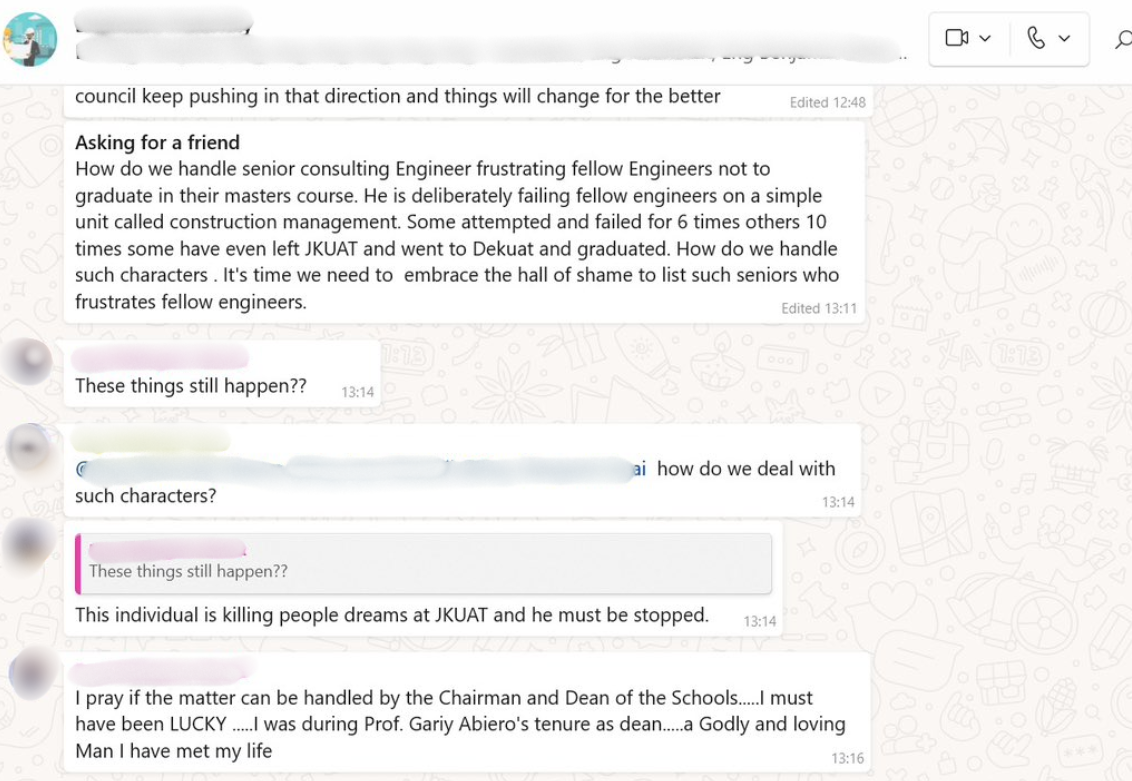
This pattern of academic obstruction, they argue, has had far-reaching consequences, prompting some candidates to abandon years of study at JKUAT and seek transfer to other institutions.
Participants in the discussions have characterized the situation as symptomatic of deeper institutional failings, pointing to a lack of oversight mechanisms capable of addressing grievances against entrenched senior faculty members who wield considerable influence over student outcomes.
The debate has also reignited broader questions within the engineering education sector about mentorship culture, academic integrity, and the role of professional bodies in safeguarding the interests of emerging engineers against what is perceived as misuse of authority in academia.
Below is what one of the engineers participating in the discussions reached out to us, recounting how the repeated failures in the unit had left them demoralized, financially strained, and questioning the fairness of an academic system that appears unable or unwilling to rein in such practices.
“Hi Nyakundi. There is something very wrong happening at JKUAT, and it has gone on for far too long. Dr. Eng. Simpson, a senior consulting engineer and lecturer, has been deliberately failing Master’s students in the Construction Management unit. It doesn’t matter how competent you are or how well you perform in other coursework. When it comes to his paper, you fail. I personally attempted that unit six times without success, and I know colleagues who tried up to ten times before giving up. Some were so demoralized and financially drained that they abandoned their studies entirely and transferred to DeKUT, where they graduated smoothly. In our engineering WhatsApp groups, almost everyone has a story about him, and the consensus is that this is not about academic standards but deliberate frustration. Students are losing years, money, and hope, yet the university leadership seems unwilling to rein him in. We believe this abuse of authority must be exposed so that no more careers are destroyed under his watch.”

